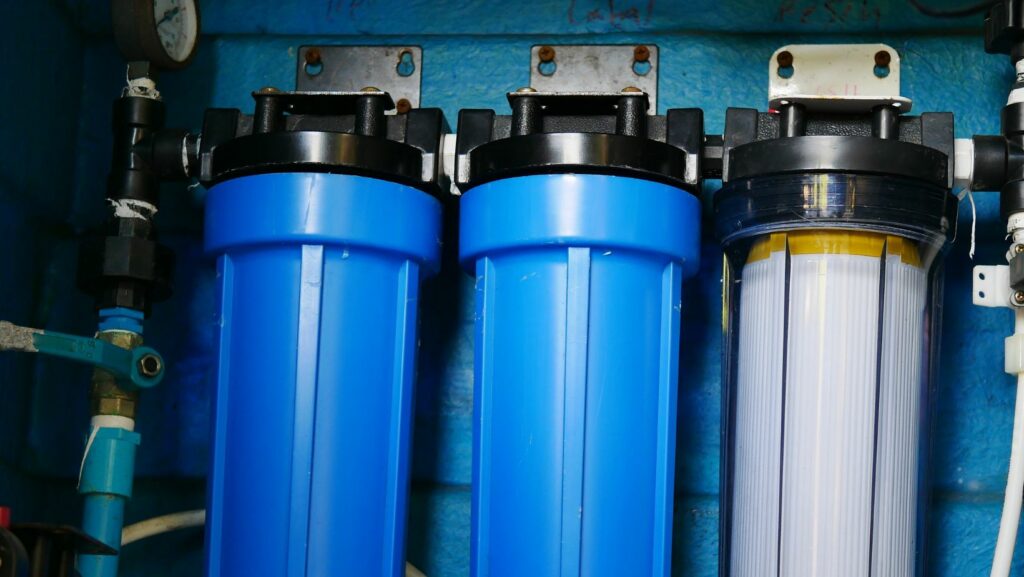Having safe drinking water is crucial for a healthy lifestyle, yet a lot of households tend to overlook the significance of water filtration. With lots of options out there choosing the appropriate water filter can feel overwhelming.
This guide is here to simplify the process and assist you in making an informed choice. Whether you’re worried about pollutants or simply desire to taste water, knowing what features to consider in a water filter is essential.
Why Do We Need Water Filters?
Although tap water in the UK is generally safe and meets regulatory standards, it may still contain impurities that impact taste, smell, and potentially health. Chlorine, lead, pesticides, and other substances are impurities that an effective water filter can eliminate.
Filtering your water can enhance its taste, lower health risks, and even prolong the life of your plumbing and appliances by preventing mineral buildup.
Types of Water Filters
- Pitcher Filters: These filters are convenient and budget friendly, making them a preferred option for many households. They function by pouring water into a pitcher equipped with a filter.
While they are simple to use, they usually offer filtration capabilities and are best suited for enhancing taste and smell rather than eliminating significant impurities.

- Faucet mounted filters: Directly attached to your faucet allowing you to easily switch between filtered and unfiltered water. They are simple to set up and offer a thorough filtration compared to pitcher filters. However they may reduce your water flow speed. Might not be compatible with all faucet types.
- Under sink filters: Installed beneath the kitchen sink providing a tap for filtered water out of view. These filters excel in filtration, capable of eliminating various contaminants such as heavy metals and pesticides.
While under-sink filters require installation and maintenance effort, they are perfect for households seeking comprehensive filtration solutions.
- Whole house filters: Integrated into the water line entering your home, ensuring that all water usage—whether for drinking, cooking, or bathing—is filtered. They effectively remove substances like chlorine and sediment. Tend to be pricier and more intricate to install.
- Reverse osmosis systems: Renowned for their top-tier filtration capabilities through the use of a permeable membrane that eliminates nearly all contaminants, including dissolved solids, bacteria, and viruses.
Typically installed under the sink, these systems come with a faucet specifically for filtered water. They are among the most effective filters, but they can be costly and tend to waste more water than other systems.
Important Features to Consider
When picking a water filter, consider the following features to ensure it suits your requirements.
- Contaminant Removal: Opt for filters that are certified by bodies like NSF International, which assess and confirm the efficacy of water filters. Choose a filter that targets the contaminants prevalent in your region.
- Flow Rate: This indicates how much water the filter can handle at once. Higher flow rates are preferable for households or if you consume a significant amount of filtered water.
- Capacity and Lifespan: Check the number of gallons of water the filter can treat before requiring replacement. Filters with high capacities need less frequent maintenance.
- Ease of Installation and Maintenance: Some filters are easy to install and can be maintained by yourself, while others may need professional servicing.
Benefits of Using Water Filters
Investing in a water filter brings benefits beyond just ensuring clean drinking water.

- Health Benefits: Removing contaminants from your water can reduce the risk of waterborne illnesses and exposure to harmful substances.
- Improved Taste and Odour: Filtering out chlorine and other chemicals can greatly enhance the taste and smell of your water, making it more pleasant for drinking and cooking purposes.
- Environmental Impact: When you use a water filter, it helps cut down on waste and reduces the environmental impact of manufacturing and transporting bottled water.
- Cost Savings: opting for a water filter can save you money in the long run compared to purchasing bottled water. It also helps prevent scale buildup in your appliances, making them last longer and saving on maintenance costs.
Making the Right Choice
Choosing the right water filter depends on your individual needs and situation. Get your water tested to know what contaminants are in it so you can choose a filter that effectively deals with those issues.
Investing in a top-notch water filter is a way to ensure that your home has access to clean, safe, and delicious tasting water today.


More Stories
Well Water vs. City Water
Outdoor Showering: A Touch of Luxury and Functionality for Your Outdoor Space
How to Maintain Privacy on Betting Sites: 10 Valuable Tips for Risk-Seekers